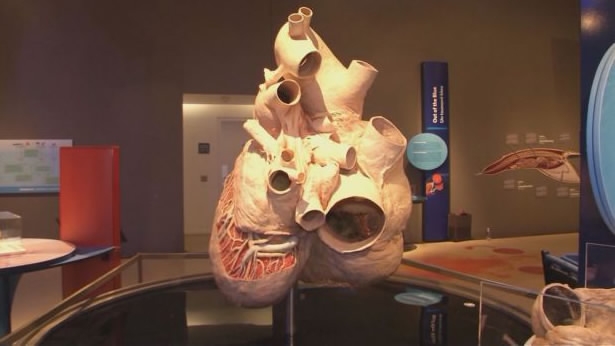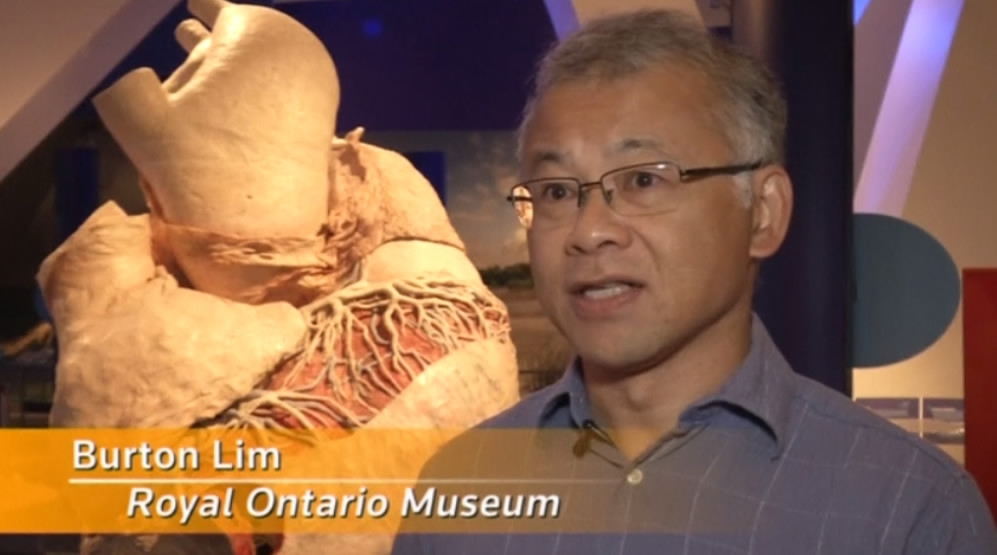
Tech & Sci
12:42, 07-Aug-2017
World's biggest heart on display in Toronto

The largest heart ever seen in the world has gone on display at Toronto's Royal Ontario Museum (ROM).
The organ belonged to one of two blue whales whose carcasses washed up on the shores of Trout River in Newfoundland and Labrador province three years ago.

World's biggest heart on display in Toronto, Canada /Reuters Photo
World's biggest heart on display in Toronto, Canada /Reuters Photo
"Blue whale carcasses are very rare because most of the time they sink, as they don't have as much fat or blubber as other whale species," Burton Lim, Assistant Curator of Mammalogy at the ROM, told reporters.
"The skeleton was buried in a manure compost for about a year and a half to get off most of the flesh and get out some of the oil in the bones."

Burton Lim, Assistant Curator of Mammalogy at the ROM /Reuters Photo
Burton Lim, Assistant Curator of Mammalogy at the ROM /Reuters Photo
The heart was then shipped to Brandenburg, Germany, where it underwent plastination by scientists at Geuben Plastinate GmbH.
Scientists pumped the heart with formaldehyde to stop decomposition before soaking it in acetone to remove all the water from the tissue.

Staff drained water before making it into a sample. /Reuters Photo
Staff drained water before making it into a sample. /Reuters Photo
Over six months the acetone replaced all the water molecules. The heart was then soaked in a silicone polymer solution and put in a vacuum chamber. With atmospheric pressure at near-outer-space conditions, the acetone bubbled away and was replaced by the polymer.
"The water can cause things to start rotting away, so has to be drawn out of the heart, which was put into a vacuum chamber, which drew out a lot of the water, enzymes and chemicals," said Lim.

One of the two blue whales whose carcasses washed up on the shores of Trout River in Newfoundland and Labrador province three years ago. /Reuters Photo
One of the two blue whales whose carcasses washed up on the shores of Trout River in Newfoundland and Labrador province three years ago. /Reuters Photo
The organ measures 5-foot x 4-foot x 4-foot and would have weighed at least 400 pounds before removal.
"Some dinosaurs, like sauropods, are longer but by weight, the blue whale is the heaviest animal that has ever lived on earth and of course its heart is the biggest heart."
Its discovery is helping mammalian scientists understand more about the blue whale's physiology.

Staff cut the blue whale carcass to get its heart. /Reuters Photo
Staff cut the blue whale carcass to get its heart. /Reuters Photo
"This is the first and only blue whale heart, so now we're working on measuring the diameters of blood vessels and the actual size of the different chambers in the heart. We're getting precise measurements that people were just estimating before."
The heart is on display at the ROM until September 4 as part of the museum's exhibit entitled Out of the Depths: The Blue Whale Story. Along with the heart itself, the centerpiece of the exhibition is a full blue whale skeleton, 80-foot long, belonging to a different whale.
(Source: Reuters)
10596km

SITEMAP
Copyright © 2018 CGTN. Beijing ICP prepared NO.16065310-3
Copyright © 2018 CGTN. Beijing ICP prepared NO.16065310-3